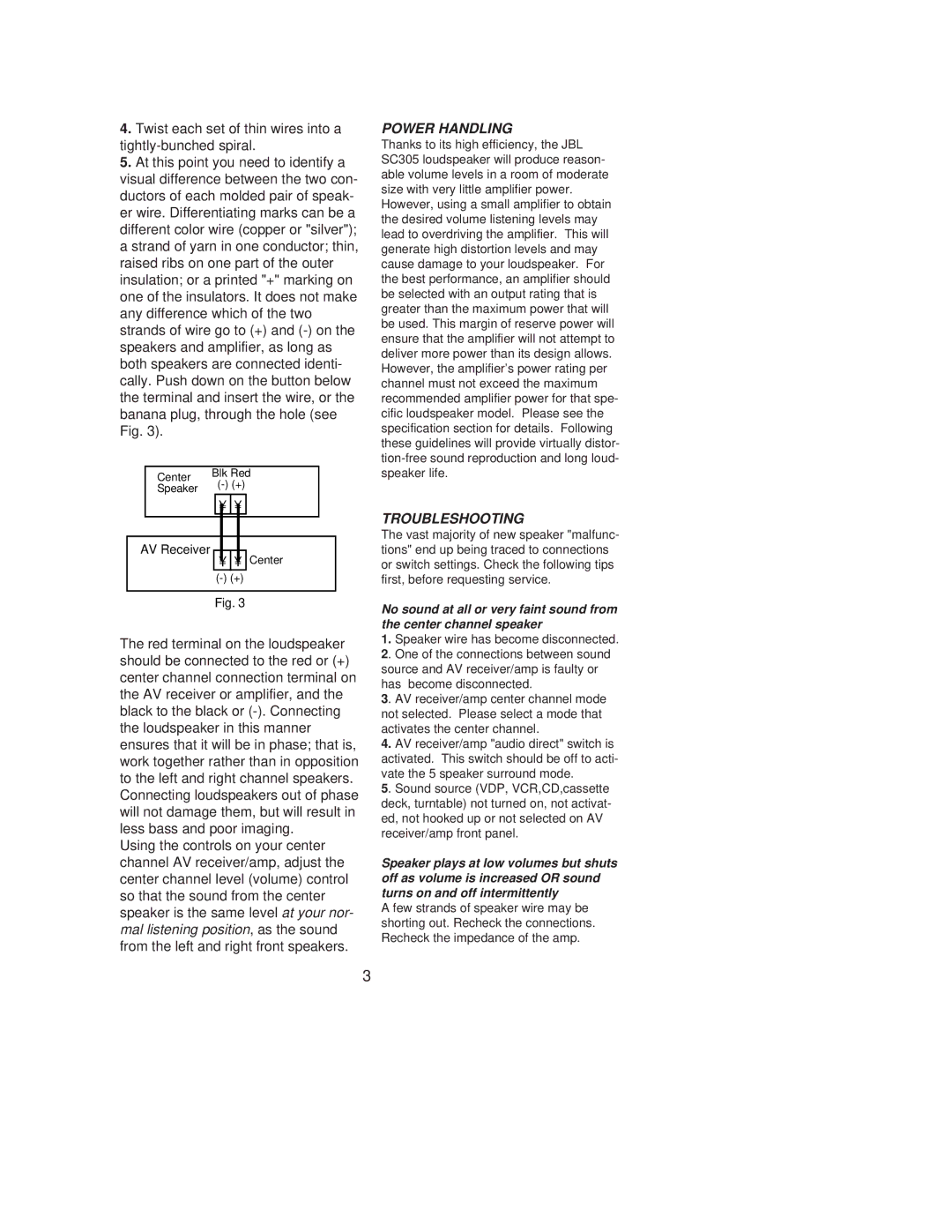SC305 specifications
The JBL SC305 is a cutting-edge studio monitor that has quickly gained a reputation for its accurate sound reproduction and impressive technology. Engineered for professional audio applications, the SC305 is ideal for music production, mixing, and mastering environments, providing sound engineers with the tools they need to create high-quality audio.One of the standout features of the JBL SC305 is its 5-inch woofer, which delivers an outstanding low-frequency response. This woofer is composed of a high-quality polypropylene cone that allows for precise sound reproduction and reduces distortion, ensuring that every note is clear and well-defined. The low-frequency performance is further enhanced by a rear-firing port that provides deeper bass while maintaining high clarity.
The SC305 also features a 1-inch soft dome tweeter that's designed to offer smooth high-frequency response with minimal coloration. The tweeter excels in producing transparent highs and works seamlessly with the woofer to create a balanced soundstage. The integration of these two drivers results in a frequency response that ranges from 48 Hz to 20 kHz, making the SC305 capable of reproducing the full range of sounds found in modern music.
In addition to its excellent audio performance, the JBL SC305 incorporates advanced JBL technologies. The built-in Class D amplifier not only provides plenty of power for clear sound reproduction but also ensures energy efficiency. The speaker’s power handling capability is impressive, allowing it to maintain consistent performance even at higher volumes, which is crucial in professional environments where dynamic range is essential.
The JBL SC305 is also designed with user-friendly controls. It features adjustable bass and treble controls, allowing users to tailor the sound according to their specific environment or personal preference. The speakers are also equipped with XLR and TRS input connectors, which ensure compatibility with a wide range of audio devices.
For those looking for durability, the SC305 comes in a robust enclosure that minimizes vibrations, protecting the internal components and ensuring long-term reliability. Its sleek design also allows it to fit seamlessly into any studio setup, making it a versatile choice for professionals.
Overall, the JBL SC305 combines advanced technology, professional-grade sound, and user-friendly design, making it an essential tool for anyone serious about audio production. From the novice to the experienced sound engineer, the SC305 offers an impressive listening experience that can elevate any audio project.

